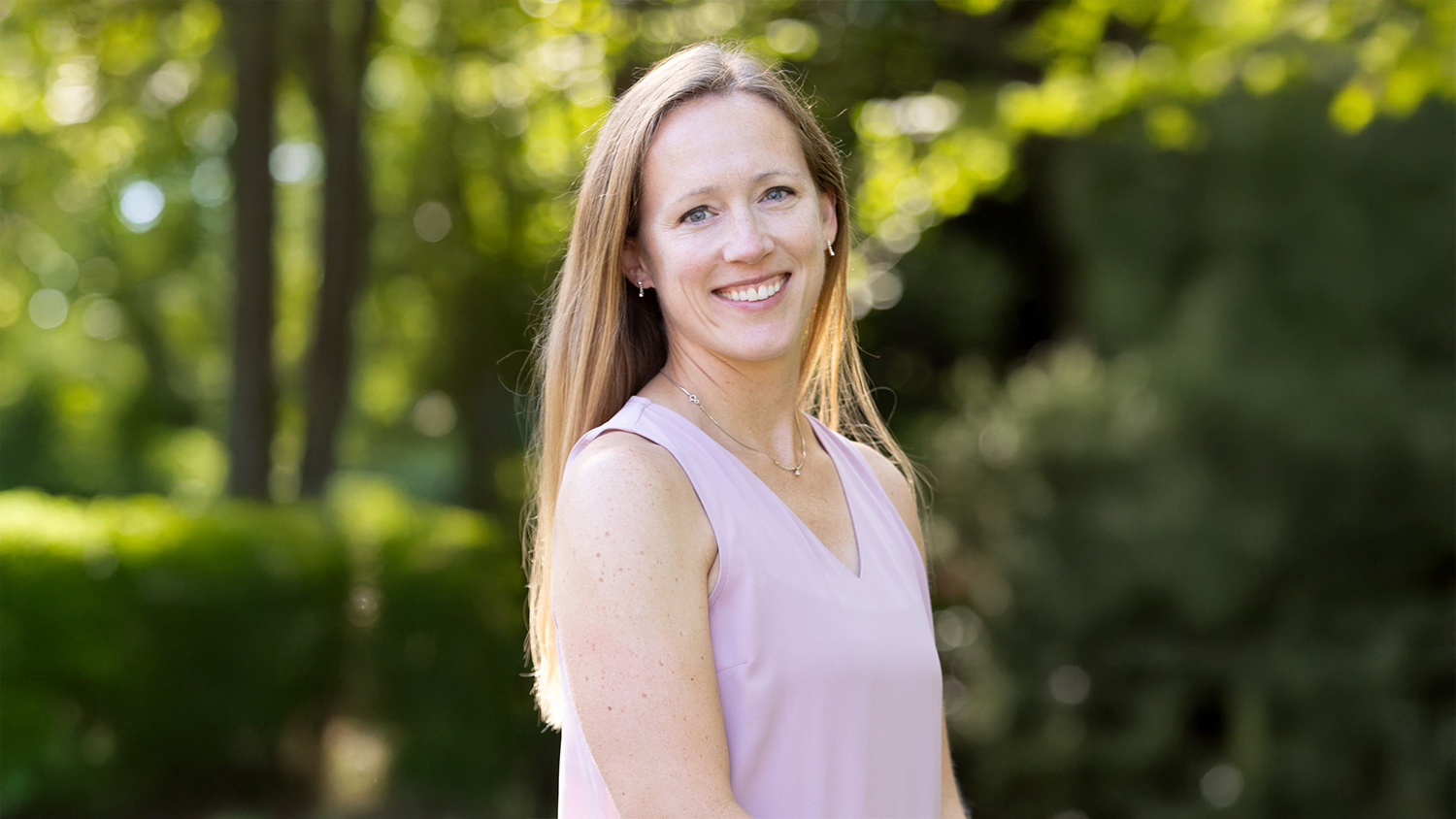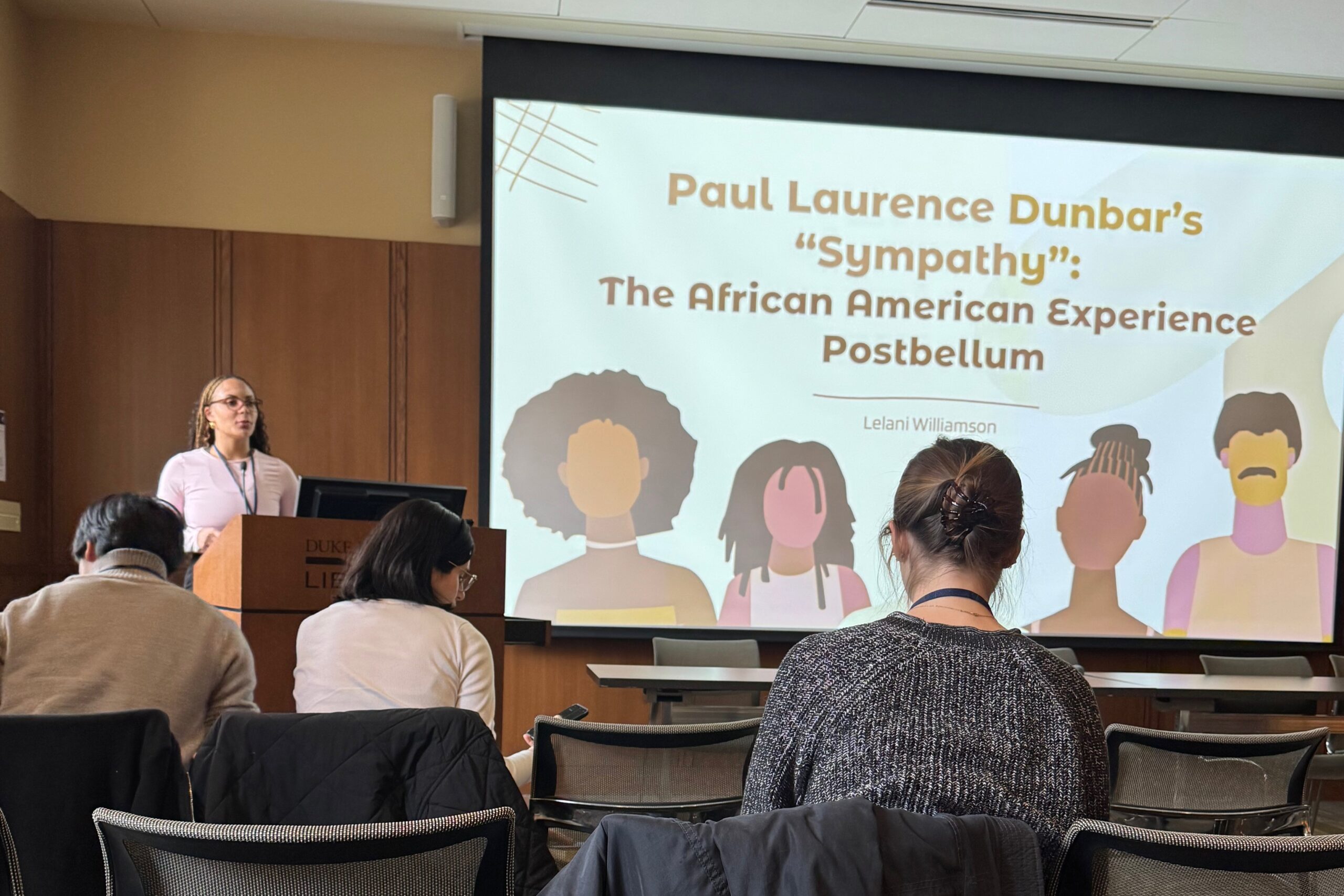Spotlight on our Students: Working with water in Cameroon
Gracie and the team after finishing a water box.
“The University Scholars Program has taught me to take pleasure in things that are different. There were plenty of experiences throughout this internship that weren’t necessarily pleasant at the time, but I knew they were stretching and shaping me into a better version of myself.”
In this edition of Spotlight on Our Students, we had the pleasure of speaking with Gracie Hornsby about her recent internship experience in Yaounde, Cameroon with the Circle of Women for Social Action and Aid. During this six-week experience, Gracie put her growing knowledge of engineering concepts to work by spearheading a water quality and sanitation project to build gravity-fed sand water filtration systems and basic pit latrines in five rural villages surrounding Yaounde. It was full of challenges and growth opportunities. Gracie is a rising junior University Scholar from Franklin, NC majoring in Civil Engineering. Read on to learn more about the impact she made during her internship.
USP: It sounds like you had a really epic summer internship. Welcome home! Can you tell us more about the Circle of Women for Social Action and Mutual Aid? What is their mission?
GH: The Circle of Women for Social Action and Mutual Aid was founded in 2008 to address the need for sustainable rural development in Cameroon. The Cameroonian government is not exactly known for providing abundant aid or social services for its citizens, but when it does, those services are generally only provided in the two major cities. Celestine, the director of the organization, felt called to reach out to rural villages like the one she was raised in to elevate the standard of living by advocating for better schools, reproductive education for the youth, adequate resources for orphanages, and now providing access to quality water and basic sanitation education. CEFASE works to equip people with their basic physical and emotional needs so they’re able to pursue their full potential and their passions.
USP: Now that is big stuff! And by the looks of it, you just jumped right in. What did you learn from your time in Cameroon with this organization?
GH: As a civil engineering student, my main area of interest is water. I firmly believe that a consistent, ample supply of good quality water can change a person’s life, and moreover, it should be a right instead of a privilege. All of that is great, but I wanted to turn my ideas into actions. It’s easy to have opinions, but I wanted to actually do something. I learned what it’s like to work and live with communities that live so differently from what I’m accustomed to and how to respectfully bring new ideas and suggestions to their traditional way of life. I was excited to gain more technical skills as well. It was a daunting task to be the only volunteer responsible for the technical and design aspects of this project, but it was also an incredible opportunity to learn everything I can about different solutions to the water quality issues in these villages.
USP: It seems like you really put your education to work during this internship. That is such great practice. What was a typical day like while you were there?
 GH: A typical day started with goats. I lived in a vacant home in one of the villages we worked in and awoke each day to the scream of our neighbor’s goats—I knew it was time to start the day. Most of the internship was spent coordinating and overseeing the construction of four spring boxes to protect the village’s springs from surface water contamination and from animals interacting with the water. Digging out spring sources, pouring concrete, stacking cinder blocks, backfilling with gravel and sand—these were everyday activities. Construction projects are never without obstacles, of course, so days were also spent digging additional gravel out of the river to then haul it bucket by bucket to the location of the spring box and constantly rearranging the work schedule. Every day was different and seldom went as planned, but each day also offered a plethora of opportunities to learn and engage with the issues and people I’m passionate about.
GH: A typical day started with goats. I lived in a vacant home in one of the villages we worked in and awoke each day to the scream of our neighbor’s goats—I knew it was time to start the day. Most of the internship was spent coordinating and overseeing the construction of four spring boxes to protect the village’s springs from surface water contamination and from animals interacting with the water. Digging out spring sources, pouring concrete, stacking cinder blocks, backfilling with gravel and sand—these were everyday activities. Construction projects are never without obstacles, of course, so days were also spent digging additional gravel out of the river to then haul it bucket by bucket to the location of the spring box and constantly rearranging the work schedule. Every day was different and seldom went as planned, but each day also offered a plethora of opportunities to learn and engage with the issues and people I’m passionate about.
USP: You were learning all about being flexible with plans and making the most of each day it sounds like. How has your time in the University Scholars Program prepared you for this internship?
GH: This may sound a little cheesy or cliché, but the University Scholars Program (USP) has taught me to take pleasure in things that are different. There were plenty of experiences throughout this internship that weren’t necessarily pleasant at the time, but I knew they were stretching and shaping me into a better version of myself. I knew it was a privilege to experience the everyday life of the Cameroonian villagers, even when it was uncomfortable or difficult. I’ve had the opportunity to hear speakers who have traveled to every corner of the earth in pursuit of knowledge and to champion causes and it helped me to be able to step back from the small discomforts to see the bigger picture. I think I was able to embrace these discomforts more readily and turn them into learning opportunities because of my time in the USP.
USP: It really is important to be able to put the small discomforts into perspective. What would you say was the most valuable thing you learned from your time in Cameroon?
GH: Hands-down the most important thing I’ll take from this internship is that sometimes you have to get some skin in the game. By that I mean that opinions are fine and advocacy is great, but eventually you need to get your hands dirty, be a little uncomfortable, and fully commit to what you’re passionate about. My perspective of the world water crisis and efforts to provide each and every person with clean water is permanently changed because of this internship. Getting to work hands-on with families which rely on stagnant surface water for their drinking water is devastating and motivating at the same time. I know that every crazy taxi ride, every labored discussion, and every dollar spent is absolutely worth it if you can provide a sustainable supply of clean water. I’ll look to engage this issue as often as I can now rather than engaging in a discussion on this issue.
USP: Just as Aldous Huxley said, “The great end of life is not knowledge, but action.” You’re living that now. Finally, Gracie, can you tell us about a skill or idea you’re bringing back with you from this experience?
GH: I’m grateful for the knowledge and skills I gained in the area of spring development, water quality, and sanitation, but the idea I’ll carry with me is that we have the opportunity to shape the world we live in every day. We have the opportunity to speak words of life to those around us, make someone’s day, stand in awe of the beauty in front of us—but we have to chose to do so. You can sit on the sidelines and pretend you’re a spectator, but none of us truly are. Doing nothing is as powerful as hopping on a plane bound for Africa, but of course with a different impact. This summer has given me renewed motivation and excitement for my time in college because I see the next two years brimming with opportunity. I get to learn from and with brilliant minds each day and be equipped to make a more meaningful mark on this world. I’m genuinely excited to be back in DH Hill studying for exams because I’ve seen now that you never know what you will use later or what might inspire a new idea.
USP: Gracie, it sounds like you’ve really had the experience of a lifetime! We are so proud of the work you’ve done and we are excited to talk with you even more about your experience when you get back to campus this fall. Thank you!
- Categories:


